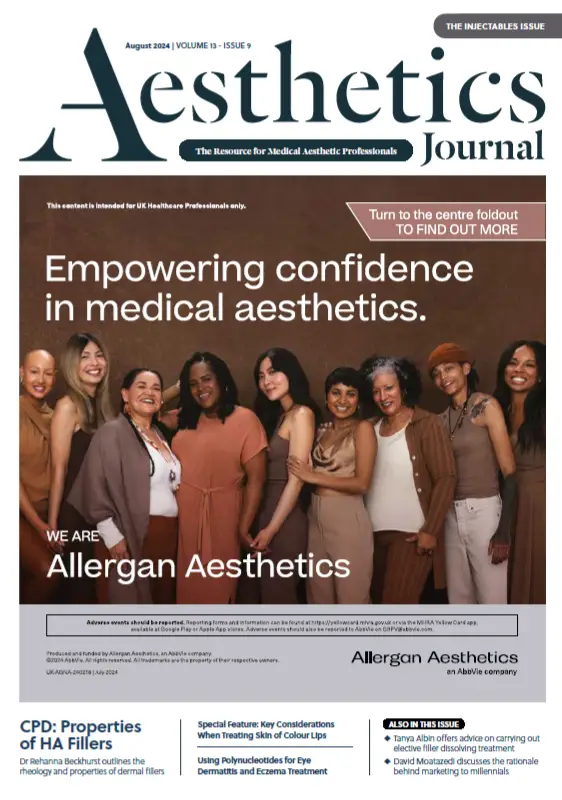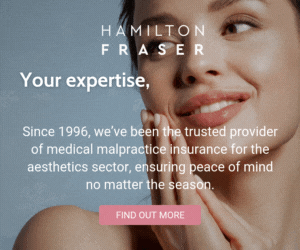The Joint Council for Cosmetic Practitioners (JCCP) has released a 15-point plan in response to the second reading of the ‘Botulinum Toxin and Cosmetic Fillers (Children’s) Bill 2019-2021’ to assist the Government formulate a coherent policy response to improve regulation throughout the aesthetics specialty.
The second reading debate took place on October 16 and looked at the issue of providing dermal fillers and botulinum toxin to under-18s. At the end of the debate, MP Edward Argar, Minister of State for the Department of Health and Social Care (DHSC) stated, “Alongside this Bill, my department is also exploring a range of options for increased oversight of practitioners, including a system of registration and licensing.”
The JCCP has stated that it supports and welcomes the Bill and has set out a 15-point plan that it believes will assist the Government in formulating a coherent policy covering wider sector issues for injectable treatments.
Professor David Sines, executive chair of the JCCP, commented, “We are at a pivotal point in the debate about regulation in the aesthetics sector and we are really encouraged by the interest shown by Parliament. It is over five years since the findings of the Keogh Review recommended increased regulation and we believe now is the time to bring all of these actions together with patient safety as the major driving force. Our 15-point plan sets the framework for a coordinated approach.”
The JCCP’s 15-point plan is as follows:
1. Introduce statutory regulation within the aesthetics sector in order to create a ‘fair and equitable’ regulatory environment
2. Mandate that education and training requirements should be prescribed for all practitioners
3. Require all aesthetic services to publish (in plain English format) a summary of the procedures that they provide, the risks associated with such treatments, the cost of such procedures, a summary of their practitioner qualifications, their insurance certificate and details of their redress scheme
4. Publication of a clear definition of what is a ‘medical-related’ service and what is an elective ‘cosmetic’ procedure/service
5. Risks and the potential for physical and psychological harm associated with each defined cosmetic treatment area of treatment should be outlined as a requirement in all aesthetic treatment assessments and pre-treatment consultations
6. Legislate that elective, non-medically-related higher risk aesthetic procedures should be restricted for use only for those who are over the age of 18
7. The information needs of patients/clients who are considering or having the ‘higher risk’ treatments should always be provided in an accessible format
8. Ensure the introduction of specific premises standards in England for beauty salons and non-Care Quality Commission registered clinics
9. Introduce nationally agreed and consistent regulatory and licensing standards for the aesthetics and beauty sector
10. The imposition of greater regulation and oversight to reduce the significant number of false and exaggerated advertising
11. The UK Government should move immediately to make dermal fillers prescription-only devices
12. All aesthetic practitioners must to adhere to the guidance set down by their professional statutory healthcare regulators and by the JCCP for responsible prescribing
13. All practitioners should hold adequate and robust medical indemnity insurance cover and to be members of redress schemes in order to protect the public
14. The Government should work with the Medicines and Healthcare products Regulatory Agency (MHRA) to design and implement a coordinated approach to the reporting and analysing of complications
15. Plug the evidence-based gap that exists with regard to the lack of data, research relating to the non-surgical sector should be addressed as a priority









